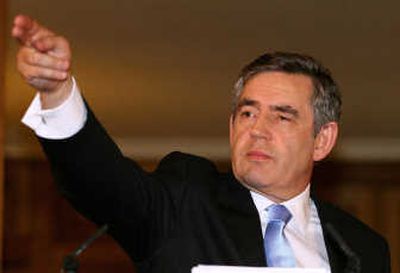Britain to slash presence in Iraq

LONDON – Britain will cut its forces in Iraq by half in the spring, shrinking the commitment of America’s leading military partner to just 2,500 troops engaged mainly in training Iraqi forces, Prime Minister Gordon Brown said Monday.
The announcement goes much further than a reduction of 1,000 troops the prime minister announced in Baghdad, the Iraqi capital, last week, and sets the stage for Britain’s exit as an active combat participant in southern Iraq, where its troops are based.
U.S. officials said the move was consistent with plans Britain previously announced to reduce the size of a force that once numbered 40,000 soldiers. U.S. generals have said publicly that there is little the British can do to resolve the main conflict in the south, an internal power struggle among Shiite factions.
But privately, some U.S. officials complain that the new prime minister is abdicating his country’s role in the war, which is deeply unpopular in Britain, because it is political expedient.
The strategy Brown laid out was a departure from that of his predecessor as prime minister, Tony Blair, whom he replaced in June. Brown called for Britain to move progressively out of active combat into a staged “overwatch” role in Iraq, with only “limited” capability for “reintervention” after spring.
The British contingent remains the largest of the foreign forces allied with the U.S. military in Iraq, but the overall number has dropped from about 50,000 in 2003 to fewer than 12,000 now. U.S. troops make up 93 percent of the foreign force.
While U.S. forces have been bogged down in Baghdad and other conflict-ridden regions to the north, they have relied on British forces to guard southern Iraq, a region that includes some of the nation’s biggest oil fields, its only access to the sea, 200 miles of its long border with Iran and the main supply line from Kuwait.
Brown’s government faces increasingly vociferous opposition to the war.
A YouGov poll earlier this year showed that 30 percent of respondents wanted troops out as soon as possible, while another 40 percent wanted a time limit of no more than 18 months.
Thousands of protesters marched through central London to the Parliament Monday to voice opposition to a war in which 170 British soldiers have lost their lives.